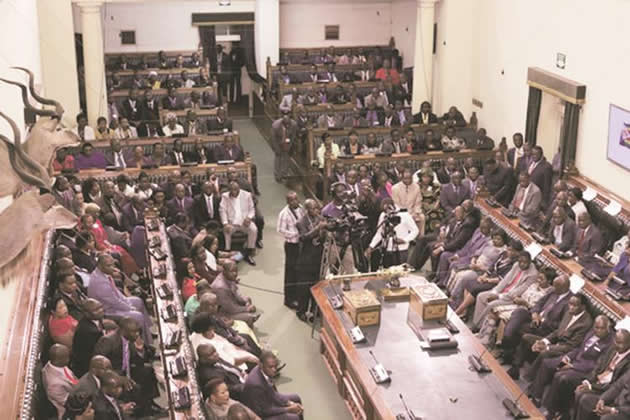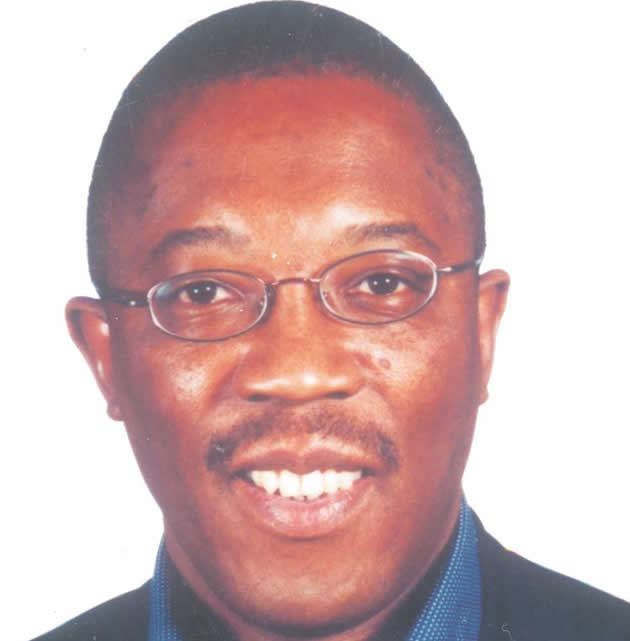Why our MPs live like paupers

Lloyd Gumbo Mr Speaker, Sir
Just the other day, I met a former Member of Parliament of the Seventh Parliament in town treating himself to a one litre soft drink and buns. He was seated in the Africa Unity Square.
All the aura and aroma that distinguished him when he was still a legislator was all gone.
Things did not look well for him.
Mr Speaker Sir, being a parliamentarian is a thankless job, you can struggle while serving and struggle when outside the august House.
MPs recently spoke passionately about how they lived like paupers when they are being chucked out of hotels and getting stranded in Harare because Parliament did not have coupons for them to travel back to their constituencies or at least sell them as become the trend of late as they try to supplement their meagre earnings.
There is need to locate the problems affecting our legislators today.
First, MPs are paid about $900 as monthly salary.
Their sitting allowances that range between $800 and $1 000 are deducted to offset vehicle loans, so effectively they are only getting about that $900 as monthly income.
These are the same MPs whose constituents expect to be the answer to every problem that affects them from school fees for their children to funeral assistance and developmental projects in their constituencies.
Mr Speaker Sir, it should be noted that Government has not done enough in terms of fulfilling its mandate of paying legislators their allowances on time.
Treasury only managed to pay outstanding allowances for MPs from the Seventh Parliament during the Eighth Parliament.
A majority of those who did not make it back into the Eighth Parliament had already hit hard times a few weeks after the dissolution of Parliament given that some of them considered Parliament as full-time employment.
They had no other source of income.
This is a lesson to would-be MPs that they must understand that Parliament must not and has never been full-time employment.
By contesting for a parliamentary seat, they must not think that they will be moving themselves out of poverty.
Parliament will not do wonders to improve their lives except to provide them with a vehicle that they will pay for over time.
Secondly, while the three arms of the State- the executive, the legislature and the judiciary – are said to be equal, MPs have complained of being treated as poor cousins in this mix.
If the truth be told without fear or favour, indeed this is the best way to describe the relationship between the three arms in terms of their treatment from Government.
Mr Speaker Sir, it certainly does not take a rocket scientist to see that ministers and judges are treated way better than backbencher MPs, their physical appearance including their skin says it all.
Officials from the executive and the judiciary are given at least two cars whenever they are appointed yet MPs who have to travel to and from their constituencies are only entitled to one off-road vehicle.
If the vehicle gets involved in an accident, the MP is expected to sort it on their own yet those in the executive will get a replacement.
MPs even compare themselves to their counterparts in the region whom they meet at conferences.
This is the treatment that MPs feel discriminates against them despite the fact that, constitutionally, they are supposed to complement the executive and the judiciary.
Mr Speaker Sir, there is need to locate the reasons behind MPs’ treatment compared to their counterparts in the executive and the judiciary.
Zimbabwe has over the years gradually increased the number of legislators, for instance in the 2000 parliamentary elections, there were only 150 MPs of which about 50 of them were to be in the executive.
During that time, Government could afford to give MPs at least two vehicles or at least twice during the term because we were still using the local currency and the total composition was quite reasonable.
The numbers were to increase again in the March 2008 polls with the then House of Assembly increasing its composition to 210 constituencies while the Senate was expanded to 66 seats.
About 50 of the MPs were to be appointed into the executive leaving about 220 as backbenchers.
Constitutional amendments in 2013 added a further 60 seats reserved for women, bringing the total composition in the National Assembly to 270 including the women’s quota of 60 while in the Senate the number came down to 80.
So this brings the total composition of Parliament to 350, subtract about 50 who are in the executive, it leaves us with about 300 backbencher MPs.
Therein lies the problem because imagine how much the country would be spending if all the MPs were to be allocated at least two vehicles each?
Mr Speaker Sir, the problem is that MPs approved the increase in the number of seats without knowing it would come back to haunt them.
Surely, every time Government decides to extend benefits to backbencher MPs, they immediately squawk because of the numbers involved.
Moreso, ministers naturally feel superior to MPs by virtue of belonging to the executive and in some cases because of the fact that they are their seniors even at party level.
Government should have taken into account the implications on the national purse, the rate at which it was increasing the number of seats since 2000.
For instance, how does one justify having 29 National Assembly and six Senate seats in Harare?
The argument about the population per constituency defies logic because other countries in the region with bigger populations than us, for instance South Africa with more than 50 million people has 490 seats only yet we are at about 15 million but with 350 parliamentary seats.
Zambia with almost the same population as us has 158 seats since 1991, so what so unique about Zimbabwe?
The reasons given for adding 60 seats reserved for women defies logic because surely Government could have come up with other mechanisms on the already existing seats to preserve the 60 seats for women.
These are some of the reasons why Government is unable to address the challenges facing our MPs and the solution lies solely with us as Zimbabweans.
- Feedback: [email protected]







Comments